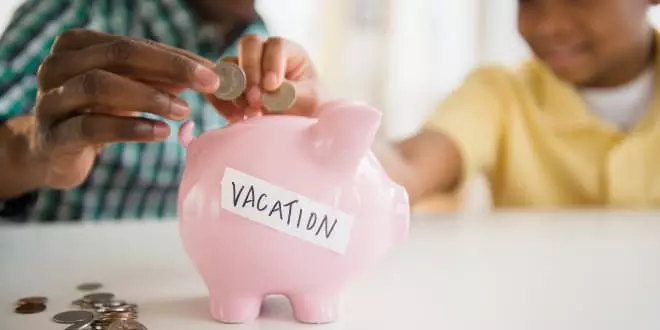Which Are the Best Free Budgeting Apps to Manage the Cost of Living?
13 September 2022With energy bills set to soar and the cost of living crisis tightening its grip, sticking to a budget has never been more essential. Fortunately, there are a few free budgeting apps on the market to keep your spending on track! Here’s an overview of the pros and cons of our favourites along with a little advice on which could be the best money manager app for you.

Which app is best for budgeting in 2025?
Goodbudget: the best free budget app for budgeting beginners
The Goodbudget review
If money matters make your head spin, get acquainted with the basics via Goodbudget. The best money management app for those who want to start straightening out their finances, Goodbudget employs the classic ‘envelope method’ of dividing up your cash into separate pots to keep everything on track.
You can set up separate pots or envelopes for expenses like the food shop and your energy bill as well as squirrel away cash into savings. Every time you make a purchase, simply log your spending in this handy expense tracker app, and Goodbudget will do the rest.
What are the pros of Goodbudget?
We love how easy this spending tracker app is to use. The instructional videos on the Goodbudget website are simple to follow and will give beginners the confidence to take control of their finances.
Another great feature is that you can access this budget app on two devices to track joint account expenditures.
What are the cons of Goodbudget?
With the free version, you can only track one account, which may not be suitable for families.
Additionally, the Goodbudget app doesn’t sync with your bank account which means it can’t track transactions automatically. It’s more high maintenance than some of the other budget apps on this list as you have to manually enter all your purchases.
But there is a workaround to this! Just download your transactions from your bank’s website, upload the doc to Goodbudget and have the app check for anything you might have forgotten about.
Can you upgrade?
Yes, there’s a paid Goodbudget Plus version which allows you to track more than one account and set up unlimited envelopes rather than sticking to the free version’s limit of 10.

Emma: best money manager app for families
How do you use Emma budgeting app?
Let’s face it, modern family life is hectic and you just want a money tracking app that lightens your load rather than adding to it. The Emma budget app is our family-friendly pick because it’s easy to use and links to your bank account to automatically analyse your spending.
All you need to do is set your payday and limits for different categories of spending. Or you can request Emma to look through your previous transactions and suggest limits for you.
What are the pros of Emma?
It’s very intuitive and easy to use but has multiple features to handle your finances with ease. You can link the app to all of your accounts, choose your own payday, and Emma even makes smart suggestions about where you can save money on bills.
You can log into multiple devices using the same phone number, so managing accounts with a partner isn’t an issue.
What are the cons of Emma?
We found the lack of a savings category frustrating, and some users have reported feeling patronised by the cheerful language and theme.
Can you get an upgrade?
Yes, Emma Plus is the paid version and comes with a few extra features that could prove helpful when facing the cost of living crisis.
Our favourite is Emma’s partnership with 60+ retailers, offering cashback for purchases you make in a whole host of popular high street stores like Boots, Curry’s and Schuh.
But then again, you could save money by sticking to the free Emma app and score your shopping discounts through vouchercloud.

Mint: the best if you have a financial goal in mind
How do I use Mint app?
This hard-working money-saving app connects with all your financial accounts to set up a monthly budget that works for you
You can categorise expenses, track your spending and even keep an eye on your credit score (without negatively impacting it). Your finances are tracked in neat visual charts, making it much easier to work out where you might need to rein in your spending.
We especially like Mint for its goal-setting tools and handy advice to help you fulfil your ambitions. Whether you’re saving for a new car, paying off debt or improving your credit score, Mint will let you know how much you need to be putting aside and monitor your progress.
What are the pros of the Mint app?
The Mint budget app syncs to a diverse set of accounts, from credit cards to saving accounts, and it even calculates your net worth. Its alerts for late fees, bill reminders and over-budgeting are helpful for those with a lot of transactions to handle.
There’s also a handy investing tracker so you can keep an eye on your investment portfolio or any Bitcoin holdings. It’s one of the best finance apps on the market!
What are the cons of the Mint app?
This money tracking app takes time to set up and might take you a while to get familiar with all the different features. We found the adverts a little intrusive too.
Can you upgrade?
If the ads are driving you up the wall, upgrade to Mint Premium for a small monthly fee. We think the visual expenditure projections and breakdowns to prevent you from spending beyond your means are pretty nifty tricks too.

Zeta: the best personal finance budgeting app for couples
How does Zeta app work?
Managing your money with another person can be tricky, but the Zeta app is set up to make this a doddle. This budgeting and expense tracking app was made for couples with joint finances, so you can connect accounts and create shared budgets, loans, credit cards and more with minimal hassle.
All Zeta features can be set as personal or shared, and it’s easy to switch views depending on what you want to monitor.
What are the pros of Zeta?
It’s our favourite budget app for managing personal and joint accounts — you can track shared budgets and goals while keeping expenses separate. Plus, we love that you can communicate in the app via memos so both of you are on the same page.
What are the cons of Zeta?The app is a little slow when it comes to updating your account and isn’t best optimised for tablets. Additionally, you need to manually update your progress towards your savings goals; it would be easier if the app did this automatically.

And our pick for the best financial planning app with a monthly fee?
YouNeedABudget or YNAB
This money manager app is considered the gold standard of paid budgeting apps. What makes YNAB so useful is its focus on zero-based budgeting, where every pound is assigned a purpose.
Planning where your money is going before you spend it can help tackle the issue of overspending and stop the pattern of living paycheck-to-paycheck. In short, you shouldn’t be spending this month’s money at all… you should be spending last month’s money. And YNAB helps you get there.
What are the pros and cons of YNAB?
YNAB seamlessly pulls in your financial details and syncs with over 12,000 banks. You can easily track your spending switch between multiple budgets, and sync the app with multiple devices.
Unfortunately, the big con is the hefty monthly fee! But if you want to get serious about your finances, you can try the app free for 34 days before you decide to commit.
We hope one of these useful money-tracking apps might help you feel more confident about the cost of living crisis. Along with these easy-to-action tips to shave money off your energy bills and more, our cost-of-living vouchers will help you weather the storm.